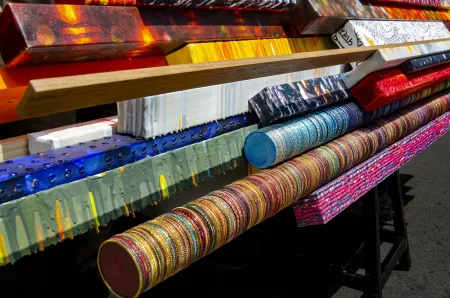- India
- International
Personal hygiene habits: Lessons to carry forward in 2021
Habits like regular change of clothes, washing them in good quality detergents and using soap as well as disinfectants while taking bath are the norm nowadays
 Here's what 2020 taught us in terms of personal hygiene practices. (Source: Getty Images/Thinkstock)
Here's what 2020 taught us in terms of personal hygiene practices. (Source: Getty Images/Thinkstock)Written by Vikas Bagaria
Personal hygiene and cleanliness are virtues that have been known to society since ancient times. Yet, factors such as neglect due to lack of time and access to resources, poverty, and in most cases, lack of awareness continue to lead to unhygienic practices even in the modern world. It could be wearing the same clothes for days, not washing hands before meals, and other such habits that many people continued with until the microbe struck. Once the COVID-19 outbreak happened, hygiene emerged as the best prevention. Throughout the year, we have all fought the war against COVID-19 on the strength of hygiene practices. Personal hygiene is no longer a choice, but a necessity. It is essential for our safety and for the well-being of the people around. Having said that, let’s take a look at some of the major personal hygiene lessons that emerged in 2020 and will form the bedrock of health and wellness in the years ahead!
Social distancing and masks
This is a viral pandemic that spreads through respiratory droplets. When an infected person releases such droplets in the air, they are estimated to travel up to around six feet. Any healthy person coming in close proximity with someone infected can end up inhaling the contaminated droplets. Thus, it is highly advised that we should maintain a distance of about six feet or more from other people in public spaces. Wearing a face mask is also a mandatory requirement these days as it can block the heavy respiratory droplets and prevent accidental inhalation.
Hand hygiene
The second-most prevalent channel of spread is when someone touches a contaminated surface which might have accumulated respiratory droplets or been touched by an infected person. Surfaces like door knobs/handles, counters, poles and switches etc., in public buildings and vehicles can prove to be risky as we are prone to touch our face quite frequently. Hence, hand hygiene measures such as washing them frequently with soap and water especially after coming home or after touching an object or surface plays a crucial role in keeping them germ-free. While outdoors and at work where washing hands frequently could become challenging, it is advised to use high-quality alcohol-based hand-sanitisers which can kill disease-causing microbes. This can not only keep us safe from the virus, but also other contagious diseases.
Touch-less living
Another aspect of personal hygiene that has emerged in 2020 is the ‘hands-off’ lifestyle. Traditional greetings with folded hands or by waving hands are replacing handshakes and high-fives in most countries and there is a growing prevalence of contactless functions. For instance, in most public places, doors are either being kept open or are automated through sensors which make them open automatically whenever a person approaches them. Biometric systems are being replaced by face scanners or other such smart technologies. Sensor-equipped taps, lights and air-conditioning systems are further boosting contactless living. Further, wearing gloves is advised for people visiting or working in high-risk zones such as hospitals, diagnostic centers and restaurants.
Sanitisation

 Make sure you sanitise repeatedly. (Source: Getty Images/Thinkstock)
Make sure you sanitise repeatedly. (Source: Getty Images/Thinkstock)
Hygiene of surfaces wasn’t a high focus area prior to the pandemic for most of us. As long as a surface looked clean, it was considered safe, but that’s not the case anymore. No matter how clean or sparkling a surface looks, it could still be teeming with harmful microbes, invisible to the eye. Hence, it has become a habit to sanitise surfaces frequently especially in public spaces. People prefer to get seats sanitised before occupying them and we have all learned to become extra cautious about the hygiene and sanitation of our surroundings.
Menstrual hygiene
This is a key aspect of hygiene habits under focus these days. Women are at the center of all household activities in most Indian families, and their own hygiene and wellness directly impacts the well-being of the entire household. Thus, it is an absolute must for them to have easy and regular access to menstrual hygiene products to confidently protect themselves and their family members from any infections.
Personal cleanliness
Habits like a regular change of clothes, washing them in good quality detergents and using soap as well as disinfectants while taking bath are the norm nowadays.
In conclusion
The pandemic has caused tremendous disruption to our lives and work processes. Irrespective of how severely or mildly it affects a person, it is still capable of wreaking havoc with our physical and mental fitness and ability to perform various tasks. In such a scenario, using hygiene and sanitation products and adhering to cleanliness can keep us safe from illness. It can also reduce other social-economic costs and be a win-win scenario for all of us! Even with a vaccine in sight in the near future, we need to continue to follow all the hygiene protocols since that is the only long-term effective defence for better health.
The author is founder, Pee Safe
For more lifestyle news, follow us: Twitter: lifestyle_ie | Facebook: IE Lifestyle | Instagram: ie_lifestyle
Apr 20: Latest News
- 01
- 02
- 03
- 04
- 05


































